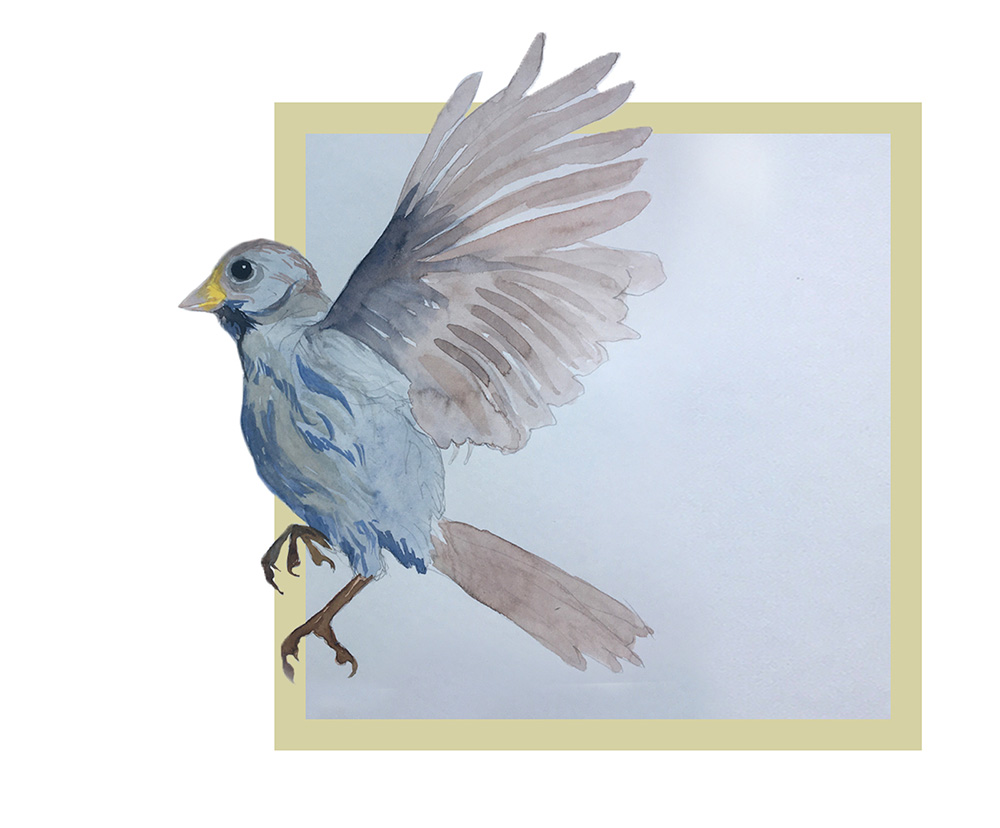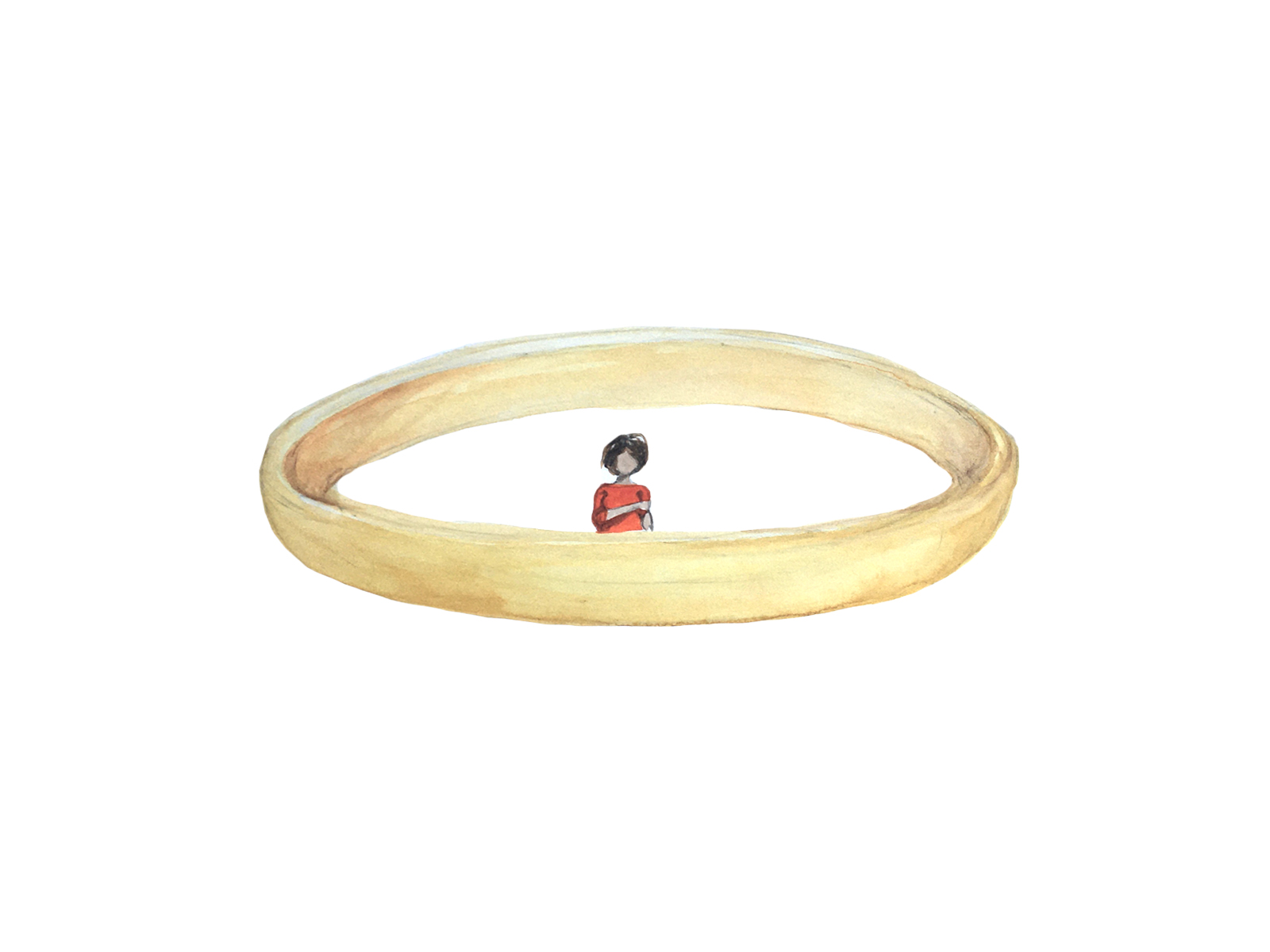A couple of days after moving to Vancouver from Pakistan to pursue a master’s in journalism, I was waiting for a bus to the University of British Columbia. It was my first time living by myself in a big city, and I felt like a fledgling bird about to take flight.
A bus pulled up to the curb and I took out my student pass. But almost as soon as I took my seat, my stomach clenched with dread. The vastness of the city coupled with the crowded bus did not help calm my nerves. Somehow, despite my best efforts, I ended up going in the wrong direction. I got off the bus once I realized it was going downtown, not to UBC.
My mind raced, but not with bus routes or class schedules. The first thought that popped in my mind was: “You are divorced.”
In South Asian culture, getting married is seen as the holy grail. No matter how smart or how accomplished you are, you’re not really successful until you’re married. You’re not treated as an adult until you’re married. And for a woman, her value is judged by her marital status. Marriage equals success. Everything else — education, career, ambitions — comes second.
I got married to my college boyfriend in my final year of university. As the fairy tale script goes, it was all rainbows and butterflies in the beginning. The families were connecting. We had mostly accepted each other for who we were. I had — somewhat — accepted his habit of being unpunctual, and he’d mastered the art of listening to my monologues about the latest pop culture controversy. Sharing silence became comfortable.
But soon after our wedding, ideological differences between the two families and the marital expectations placed on me started to create friction. Ultimately, my then-husband moved abroad. We barely said goodbye.
I filed for khula, an infamous kind of divorce in Islam where the woman initiates the proceeding. Infamous because culturally women are encouraged to fight for the marriage, even when things such as cheating or violence, which didn’t happen in my marriage, are involved.
I just wanted it over. But my best friend did not want me to file for khula in the “heat of the moment.” My parents were unhappy, though they had my best interests at heart and did what they believed was right at the time. My mother believed that I would never be able to move on from it, and that I should try to make it work.
Everyone I talked to instructed me to “make it work.”
Indira Prahst, instructor of sociology and anthropology at Langara College, pins this on the social construction — attached to a woman — that requires holding up family appearances at the expense of her own lived experience.
“[Women] are supposed to self-sacrifice in the union of marriage at all costs,” said Prahst. “Her unhappiness does not matter.”
I knew all this, and I did it anyway. My divorce was finalized on the day of my cousin’s wedding. I stayed in bed after getting the phone call from my lawyer. I cried my eyes out, staring at the ceiling, looking for answers. After three hours of throwing "how" and "why" into the air with no answer, I got up and dressed for my cousin’s big day.
At the wedding, the universe’s cruel timing wasn’t lost on me. I did not want anyone to see that I was any less than the next person. That there was something wrong with me. That I failed. So, I smiled. I laughed. I danced.
I got caught up in proving to the world that I was happy and liberated when, in reality, I was not. My cousin had achieved the one goal every woman is supposed to want, while I had walked away.
Prahst says this self-judgment is a product of “deeply entrenched” social conditioning that begins at an early age. “When that particular dream and expectation falls through, the burden falls on the woman as having failed.”
In the aftermath of divorce, I started to scrutinize every decision made, every word said during the tumultuous period of the relationship. I couldn’t shake all the judgment I was hearing. When I tried opening up, all I heard was more blame.
“She is selfish.” “She is demanding.” “You are a privileged snowflake.” “You did not even try.” “It was not a big deal.” “You’re just overreacting.”
I know my decision to leave the marriage was not made on a whim. I waited and tried my best to make it work. Even when things were falling apart, I made sure not to give up. I continued to check on him to make sure he was doing OK. I was honest with him about my doubts and fear. I hoped for reconciliation, but a meaningful resolution never came.
Love and happiness are often not synonymous with marriage in South Asian culture. Being unhappy is not seen as a good enough reason to dissolve a marriage. If you do, you’re labelled as selfish and short-sighted.
I decided to reach out to someone who could explain why unhappiness is not deemed sufficient. Shahnaz Rahman, executive director at the Surrey Women’s Centre, has worked for the past 26 years to provide support to South Asian women leaving broken marriages or domestic violence.
Rahman underlined that divorce is the last option for a woman, yet she is the one who ends up carrying the blame.
“There’s nothing pleasant in this experience for [a woman] at all. It’s not a decision they make overnight,” said Rahman. “They have so much shame, guilt internalized.”
The guilt of bringing pain to my loved ones because of a decision I made was and is overwhelming. The gnawing realization that my siblings have to answer questions about my divorce never goes away. The countless justifications that I’ve seen my parents offer to family and friends in response to the divorce continues to weigh on me. Leaving a bad situation felt right, but I was unable to forgive myself for doing it.
In order to ease some of the guilt, I tried to do something “right” one last time before coming to Vancouver. I went to get my ID documents revised after the divorce by myself. I thought I could spare my parents this little inconvenience at least.
I remember going to the government office in my hometown, Rawalpindi. The office was unusually cold and quiet compared to the noise and sweltering heat outside. After waiting a few minutes, I was called up front to one of the kiosks. I could read the judgment on the woman’s face as she went through my documents and figured out what I was there for. She asked where my father was. I lied and answered that he was at work. She said I could not get my documents revised until a parent or guardian signed the paper. I was 23 years old and denied the right to exercise control over my own life.
For a few seconds I looked at her in complete disbelief. My eyes welled up as I took the documents aside and decided to call my mother. Like a lioness coming to rescue her cub, she came to sign the papers.
On the way home, something happened. She was furious. Not at me. She was furious at what had just happened, and all the things that came before. For the first time, I felt I could join her and get mad too. Not feel guilty but feel anger. Grief. Loss.

We both shared a much-needed release of pent-up emotions. She asked if I wanted to get my childhood favourite, pulao rice, on the ride home. I said yes. We got pulao and my mother drove as I started eating. I offered her small, quick bites at stops.
That day I overcame a fragment of the internalized stigma tattooed in my brain. But it’s still there.
When I arrived in Vancouver, I didn’t open up about my divorce right away. I didn’t want people to see me differently, as they did in Pakistan. I learned that opening up didn’t always help.
My friends were mostly sympathetic, but many didn’t see my divorce as a big deal. When the topic came up at a game night or coffee date it became the butt of jokes, leaving me feeling exposed and ashamed. But I had one friend, my housemate, who listened patiently, did not interrupt or offer advice, and understood that nothing else matters if I wasn’t happy.
I was taken aback when my friend underscored that happiness does matter. It made me wonder — what am I blaming myself for then?
On days when I feel caught in an endless loop of blame, I find myself returning to journal entries from the weeks and months following my divorce. I see now that I have a sense of control over my own life, and that I’m not as angry as I used to be.
In one entry I begged for answers, asking why my family had to shoulder so much of the burden. Another reads: “Why did it happen? Why did it happen? Why did it happen? Why did it happen? I don’t know what else to do but ask why did it happen... ? Why? Why? Why?”
Reading these words made me weep uncontrollably for the person I was then. I let the stigma overtake my identity to the point where I become unaware of my true unhappiness. It took me back to how miserable I was. I had no concept of day or night because I wasn’t sleeping. I was either eating too much or not eating at all. I was losing hair, losing weight. I could not hold conversations anymore. I was losing interest in everything that moved me. Only after revisiting the journal did I realize how unhappy I was then, and that it was good enough reason to part ways.
I still carry the weight of being a divorcee every second of every day. It’s a consuming, intrusive thought that I can’t push away.
I still look down and avoid eye contact when the topic of marriage or a breakup surfaces in group discussions. I still freak out at the possible judgment when someone mentions my divorce in front of someone who doesn’t know. I’m still trying to find answers to all the "hows" and "whys." I still wake up crying in the middle of the night because of dreams from that difficult period. I often catch myself using my left thumb and pinky finger to adjust the wedding band that isn’t there anymore. I still have days where I am back to square one, losing all the progress I made. There is no overnight fix for this.
I am learning every day how to unpack this internalized stigma, constantly negotiating with myself. I remind myself of all the effort I put in, trying to make the relationship work. I’ve stopped expecting people to understand what it is like to be divorced. I don’t look for that social acceptance to battle my internalized stigma anymore.
And I try to forgive myself every day for not being kind and patient enough with myself.
In August, it will be a year since I accidentally got on the wrong bus. Since then, I’ve got on wrong buses many times. Each time, however, that intrusive thought “you are divorced” fades a little, now replaced with “you’ll be fine.” ![]()
Read more: Rights + Justice
















Tyee Commenting Guidelines
Comments that violate guidelines risk being deleted, and violations may result in a temporary or permanent user ban. Maintain the spirit of good conversation to stay in the discussion.
*Please note The Tyee is not a forum for spreading misinformation about COVID-19, denying its existence or minimizing its risk to public health.
Do:
Do not: